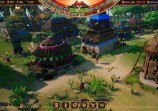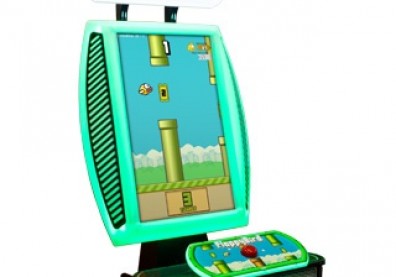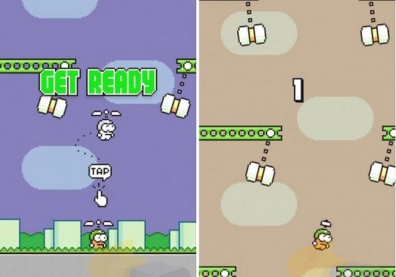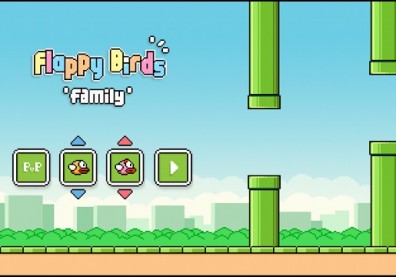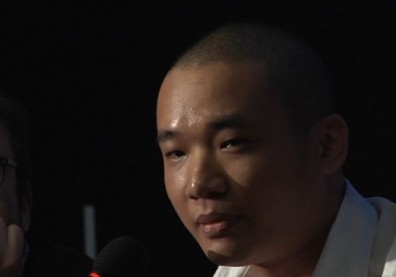It seems like the instant success formula for mobile games these days is "cute birds + challenge = success." Taking a page from Rovio's Angry Birds and/or Andreas Illiger's Tiny Wings, there's a new adorable avifauna with limited flight functionality that's gobbled up attention on the mobile marketplace.
Vietnamese indie developer Nguyen Ha Dong is the creator of Flappy Bird, which has players control a fluttering fowl, guiding it through a series of green pipes that look remarkably similar to those responsible for transporting a well known Italian plumber. The game is very simple, but it's also proving to be quite the challenge among iOS and Android enthusiasts, as achieving a score in double digits apparently translates to having the hand eye coordination of a god.
Seeing Flappy Bird appear out of seemingly nowhere, I was curious about it and gave it a shot. It's honest, but it's nothing special, which is why I just can't fathom its popularity. It's almost a fad today to accuse some of the most popular games on the App Store or Google Play as cheap rip-offs of something else that came long before, usually with minor alterations or improvements if any: Angry Birds is Crush the Castle, Candy Crush Saga is Bejeweled (with a developer that's considerably more well versed in trademark law), and God only knows how many tower defense games have been developed before Clash of Clans hit it big.
The preogenitor of many of these popular games can be traced back to Flash and Shockwave games that were often the go-to choice of budget gaming before everyone and their mother had a smartphone, and within seconds of playing Flappy, I was having flashbacks from playing this hit over a decade ago. Granted, it's not exactly the same - Flappy Bird has players tap the screen to arc the bird, whereas Helicopter Game has players hold down the mouse to raise the "choppa." You could make the argument that as Flappy Bird's winged puff ball follows a pre-determined flight plan with each tap, it could be considered a bit more challenging, but there's very little to separate the two games save for the eye of the beholder. That, and I don't think anyone will ever make a dedicated Flappy Bird cabinet for their son.
As some of the most popular games on Google Play or The App Store are more often than not cutesy makeovers of a tried and true formula, Flappy Bird's complete lack of originality is understandable, but what's difficult to grasp is how exactly it became so damn big, as there's so little to it. Even if it received a giant push thanks to some kind of marketing or advertising (which the creator claims was not the case), the gameplay just isn't enough to keep Flappy Bird at this kind of popularity level for long, or its booming popularity to be solely the result of gameplay alone. I hate to lob accusations, but suffice it to say, more than a few eyebrows have been raised.
Despite the rip-off argument of games like Candy Crush or Angry Birds, the success they've attained is actually understandable, as there's significantly more to these games than Flappy Bird (that and a few microtransactions certainly helps).
The amount of challenge Flappy provides is an argument for its immediate, which is possible. We've all seen that play out with Bennett Foddy's insanity inspiring and difficult to the point of absurdity games like QWOP, GIRP, and CLOP. But like we've also seen with those games, it doesn't translate into longevity.
In the long run, Flappy Birds will amount to little more than a blip in the radar. But in the off chance that Dong turns into the next Rovio or King, I'll gladly mash up my words into humble pie and take a big bite.
